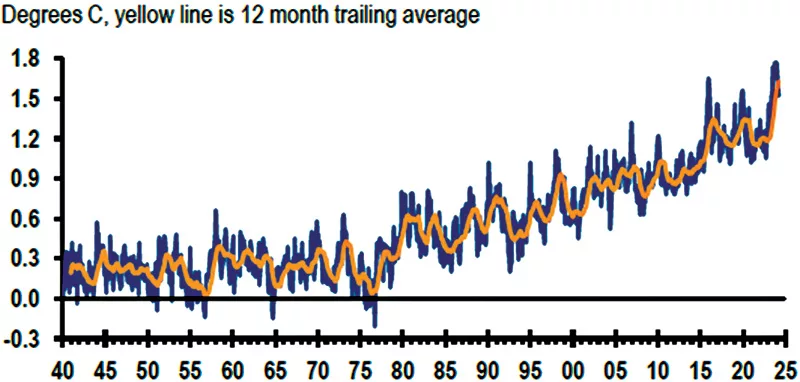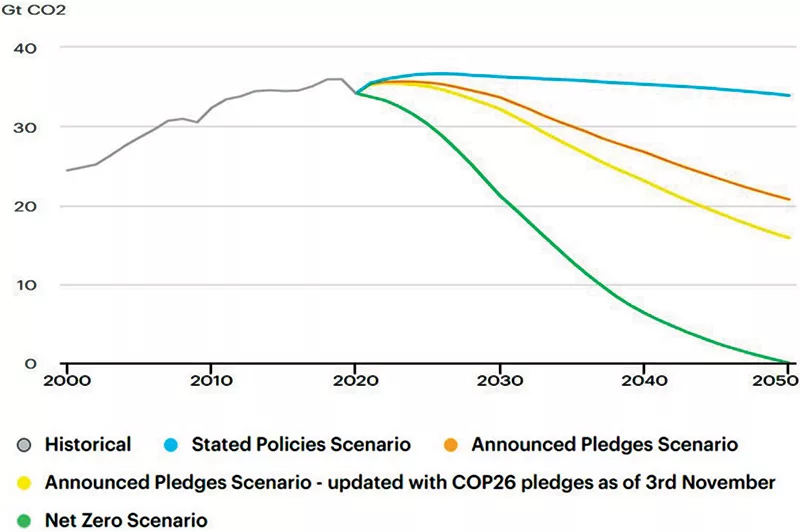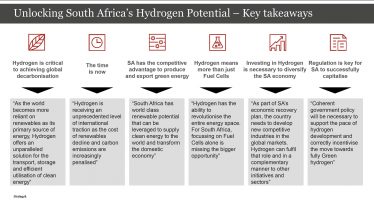Otaviano Canuto: Politics and Climate Change Make Awkward Bedfellows in the Race to Tackle a Truly Fearsome Foe
The earth’s average surface temperature this May was higher than any other May on record… what can, and should, governments be doing?
According to the European Union’s Copernicus Climate Change Service, May’s temperature was 1.52 degrees Celsius above the pre-industrial average.

It’s part of a pattern; temperatures over the past 12 months have averaged 1.63°C above (Figure 1). Global sea surface temperatures have also set records over the past 14 months.
The pushback on policy to limit climate change is mentioned in June’s JPMorgan’s Global Data Watch (with data from Copernicus Climate Change Service).
Consider the extreme weather event of the floods in Rio Grande do Sul, Brazil, in April and May. A World Weather Attribution study estimates that the likelihood of this happening has more than doubled thanks to climate change and the El Niño weather pattern, the intensity of which has increased — by six percent — to reach nine percent.
Scientists point out that actions taken in this decade will be crucial to achieving the goal of the 2015 Paris Agreement: to limit human-caused climate change to below 2°C, with the hope of not exceeding 1.5°C. In the wake of the COP26 Climate Change Conference in Glasgow in 2021, the International Energy Agency updated its CO2 emissions scenarios in its World Energy Outlook (IEA, 2021), taking into account the country pledges to date. Despite a decline in emissions, the world remains far from the ambitious net-zero scenario by 2050 (Figure 2).
Whatever happens in the next few years will have consequences on the progress that can be made in terms of climate change (Canuto, 2021).

Figure 1: Global Surface Temperature Increase Over Pre-industrial Temperatures. Source: Malcolm Barr (2024).
As reported by Malcolm Barr in a JP Morgan Global Data Watch report from June this year, the assessment of last year’s COP28 was that the world was not on track to meet these goals. There are doubts about whether countries’ nationally determined contributions (NDCs) will deliver sufficient reductions in greenhouse gas emissions to limit global warming. Doubts, too, as to whether countries will individually take the necessary actions to implement their individual plans.
There is more uncertainty about whether financial flows from developed countries to developing economies will be enough to help the transition to green energy and cleaner production methods.
COP30, to be held in 2025 in Belém, Brazil, is expected to bring a new set of NDCs, covering the period up to 2035. Nothing similar is scheduled for COP29 in November this year, in Baku, Azerbaijan. The proof that COPs are helping to deliver more effective commitments — if countries cut their emissions faster, and if more resources are secured for developing countries.
Recent political developments have signalled that risks and delays are likely. Popular support has risen for right-wing politicians in Europe. Although the EU has long positioned itself as a leader in efforts to tackle climate change, it has become common for right-wing parties to question the the environmental policy. This has already led to the dilution of parts of the EU’s European Green Deal package.
This is not uniform. In the UK, the latest election ousted the Conservative Party, which had diluted climate commitments in favour of the more carbon-neutrality-committed Labour Party. The gains of the political right in recent European parliamentary elections, as well as in France, may hamper manoeuvre on environmental policy.

Figure 2: CO2 Emissions Scenarios Over Time, 2000-2050. Source: IEA (2021).
In the US, the possibility of a Trump return does not bode well for the emissions reduction agenda. During his previous term, Trump withdrew from the Paris Agreement, a move reversed by his successor, Biden. Trump’s climate-change scepticism was evident during his first term, but the candidate has nonetheless referenced his disagreement with Democrats’ commitment to US climate policy.
Trade tensions over electric vehicles (EVs) aren’t helping. China has prioritised industries associated with the green transition as part of its multi-year strategic policy, addressing structural growth challenges. It has taken market leadership positions in EVS and battery production and development.
The EU recently announced tariffs on EV imports from Chinese manufacturers, arguing that they have benefited from unfair state support compared to European producers. In the US, the Inflation Reduction Act has subsidies and incentives for a green transition primarily tied to value added domestically. Ensuring that jobs and activities within their own borders are prioritised make this more costly — and probably less effective.
The damage from climate change has already arrived, and will increase. The situation will only get worse if the world fails to reduce carbon emissions — which will depend on countries establishing and fulfilling appropriate NDCs. Recent political developments in countries with significant influence on this trajectory do not seem promising. We can only hope that this evolution does not bring greater consequences for the Road to Decarbonisation.
A version of this article was published by Policy Centre for the New South.
About the Author
Otaviano Canuto, based in Washington, D.C, is a former vice president and a former executive director at the World Bank, a former executive director at the International Monetary Fund, and a former vice president at the Inter-American Development Bank. He is also a former deputy minister for international affairs at Brazil’s Ministry of Finance and a former professor of economics at the University of São Paulo and the University of Campinas, Brazil. Currently, he is a senior fellow at the Policy Center for the New South, a professorial lecturer of international affairs at the Elliott School of International Affairs – George Washington University, a nonresident senior fellow at Brookings Institution, a professor affiliate at UM6P, and principal at Center for Macroeconomics and Development. Otaviano has been a regular columnist for CFI.co for the past 12 years. X: @ocanuto
You may have an interest in also reading…
From Australia to the World – Rupert Murdoch: The Future of Newspapers in the Age of the Internet
Australia is simply not big enough for Rupert Murdoch, though the country did give him his first break into publishing
PwC: South Africa Has an Unprecedented Opportunity to Capitalise on the Rapidly Developing Global Hydrogen Economy
Hydrogen can be a game changer for the South African economy. Opportunities exist for South Africa to partake in the
Matein Khalid: A Random Walk Down Silicon Valley’s Pre-IPO Deal Flow
2020 was a spectacular year for investing in late stage technology unicorns and I am proud to have led significant

















































































